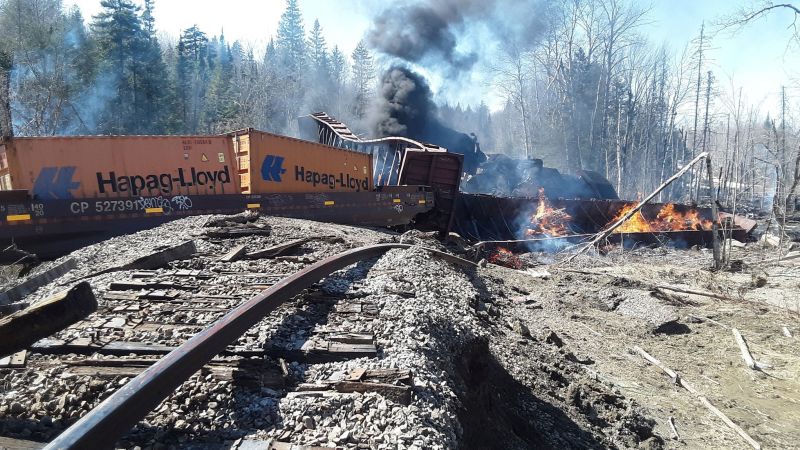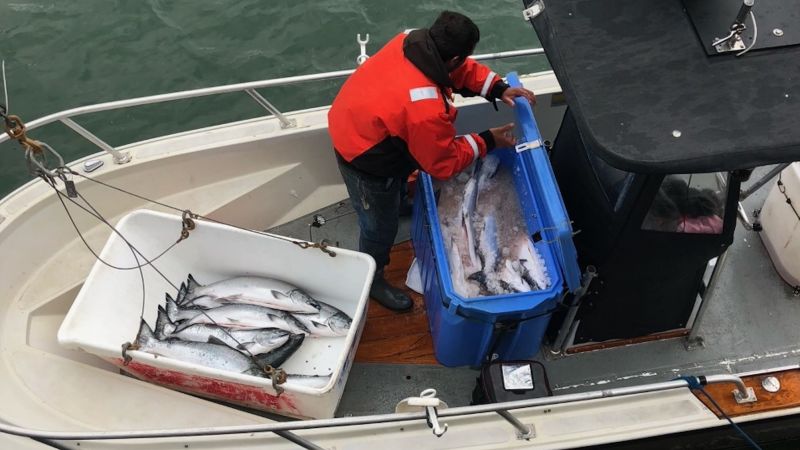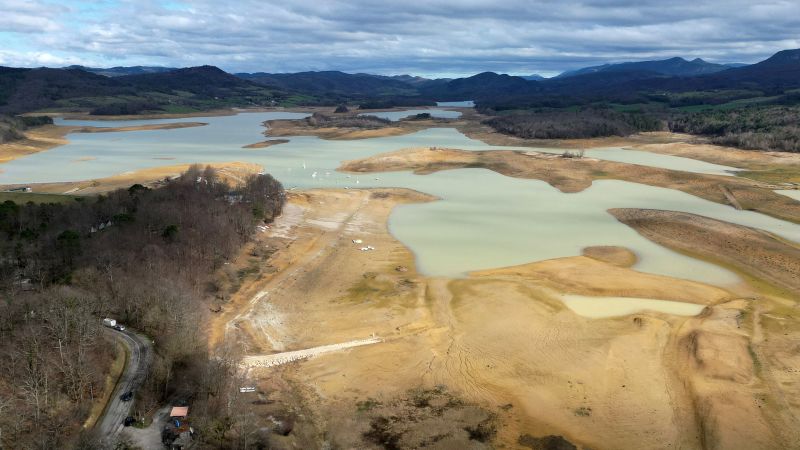North Carolina
Daily on Energy: Panel visits site of North Carolina substation shootings to highlight grid risk

Subscribe today to the Washington Examiner magazine and get Washington Briefing: politics and policy stories that will keep you up to date with what’s going on in Washington. SUBSCRIBE NOW: Just $1.00 an issue!
FIELD TRIP: Members of the Energy and Commerce Subcommittee on Energy, Climate and Grid Security traveled this morning to near the site of attacks on substations in North Carolina for a field hearing on threats to the power grid.
The hearing comes just seven months after two Duke Energy substations in Moore County, North Carolina were attacked by gunfire, causing roughly 45,000 customers to lose power. The attacks raised new concerns about the vulnerability of grids—and not just in North Carolina.
Efforts to physically attack, sabotage and vandalize the U.S. grid rose to a 10-year high in 2022, according to data from the Department of Energy.
The same month as the Moore County attacks, at least six substations were attacked in Washington State and Oregon. In February, federal officials arrested two people for plotting to carry out an attack in Baltimore that would, in their words, “completely destroy the city.”
Security risks, “both cyber and physical, are growing,” Tim Ponseti, the vice president of operations at SERC, testified today.
According to an April 2023 analysis prepared for the federal government by the North American Reliability Corporation, the amount of physical security incidents to grids that have resulted in a “measurable outage” have increased by 71% since 2021.
SERC, one of six regional entities that works with NERC to help assess and identify risks, raised a number of identified threats to the grid, including a major lack of workers trained in IT and OT, an increase in extreme weather events, and a number of new and emerging technologies—including many renewable energy projects—that are being added to the grid.
Connecting any new power supply to the grid creates a much larger “surface area” that can be exploited, SERC noted. And though efforts have been made to improve information-sharing within the public and private sector, Ponseti and others emphasized during Friday’s hearing that much more work needs to be done.
Take the North Carolina attacks for example. The two unmanned substations were taken down by gunfire, but ultimately caused millions of dollars of damage to the community.
Hospitals were temporarily taken offline and schools were shut down. Tens of thousands were plunged into darkness— some, for as long as a week.
“Stoplights went dark. Gas stations were closed. Cell signal was impacted,” Rep. Richard Hudson, a North Carolina Republican whose district includes Moore County, said today. “Our region suffered millions of dollars in damage, right before the Christmas holiday.”
The shooters have not been caught.
Looking ahead: U.S. officials warned this morning that such attacks could quickly multiply and pose risks to more bulk power systems unless a robust security strategy to identify and prevent such attacks.
Such concerns are exacerbated if outages occur at the same time as other hazardous conditions—including flooding, wildfire, or extreme temperatures, witnesses noted during the hearing.
And others stressed the need for more information sharing: Three days before the Moore County attacks, DHS’s National Terrorism Advisory System warned the county about the risk of heightened threats to critical infrastructure, though it is unclear whether Duke Energy ever got word of that memo.
“The information sharing protections currently in place do not adequately support open honest and transparent dialogue between the public and private sector. and we must be able to work together in an environment that addresses the needs of both [sectors],” Dr. Jordan Kern, an assistant professor at North Carolina State University’s Department of Industrial and Systems Engineering, said today.
Welcome to Daily on Energy, written by Washington Examiner Energy and Environment Writers Jeremy Beaman (@jeremywbeaman) and Breanne Deppisch (@breanne_dep). Email jbeaman@washingtonexaminer.com or bdeppisch@washingtonexaminer.com for tips, suggestions, calendar items, and anything else. If a friend sent this to you and you’d like to sign up, click here. If signing up doesn’t work, shoot us an email, and we’ll add you to our list.
ADEYEMO TOUTS OIL PRICE CAP AS A SUCCESS: Deputy Treasury Secretary Wally Adeyemo made the case yesterday that the Russian oil price cap is achieving its twin goals of cutting into the Kremlin’s warchest while also keeping its barrels on the market.
Adeyemo said at an event at the Center for a New American Security that the cap is showing “clear signs of success” six months after it came into force in December, including reducing Russia’s government revenues by nearly 50% from the same point last year.
“Despite higher exports, Russia is making less because its oil now trades at a discount of 25%, relative to others in the world,” Adeyemo said of Russian Urals grade crude, which prior to the war was trading nearly level to Brent crude, the international benchmark.
In the U..S. view, the Kremlin’s new tax on oil companies is a “clear sign that they see the impact of a price cap as being highly significant,” Adeyemo told Breanne.
His remarks come days after the National Bureau of Economic Research circulated a white paper suggesting the oil price cap should be lowered to $45 per barrel and highlighting the risk of Russia amassing a large “shadow fleet” or network of illegal tankers to ship oil outside the reach of the price cap.
“We think that right now we’ve struck the right balance,” he told Breanne. “But we’re open to thinking through what we do going forward — to make what is already an incredibly hard choice for the Kremlin even harder.”
ROSNEFT NEARS DEAL ON ‘SUBSTANTIAL OIL SALE’: Russian state-controlled energy giant Rosneft is nearing a long-term deal to sell “substantial” amounts of oil via tenders. The sale is expected to be the largest tender sale since the war began, and the list of potential buyers includes trading firms who are hoping to export to customers in China, India, and Turkey, which have all emerged as the biggest buyers of Russian oil following its invasion of Ukraine.
Russia is looking to lock in buyers for an estimated millions of metric tons of crude products through the next year—seeing tenders as a more efficient way to sell large volumes of crude and refined oil, rather than by boatload, the Wall Street Journal reports.
The demand comes in sharp contrast to last year, when the state-run oil major failed to secure buyers in a tender shortly after the start of the war in Ukraine.
It is likely to be Russia’s largest oil sale since the start of the war, and involves a “significant” amount of Rosneft’s output, though exact amounts could not immediately be confirmed.
…Meanwhile, Europe’s gas market is showing signs of falling back into crisis: Prices whipsawed this week on the news that the Netherlands is planning to close a key gas field on October 1, and amid a series of small outages at a gas facility in Norway.
News that the Netherlands accelerated its planned date to close the Groningen gas field sent front-month gas futures soaring prices by more than 30% yesterday, up to their highest level since early April.
“This was a taster of the potential risk to come,” Nick Campbell, a director at Inspired Energy, told Bloomberg. “Whilst this may convince large industrials to keep lower production or sites mothballed, which will ease any demand increase, all eyes are on supply.”
Others cited concerns that hot summer conditions could drive up energy demand for cooling.
GAO WILL INVESTIGATE WHALE DEATHS AND OFFSHORE WIND: The Government Accountability Office said yesterday it will open an investigation into the recent rise in whale deaths along the New Jersey coastline, delivering a victory to Rep. Chris Smith and other House lawmakers who have raised alarms about the risk to marine life and requested a probe.
“This aggressive, independent investigation into the ocean-altering impacts of the 3,400 offshore wind turbines slated for the Jersey Shore will help address the wide-ranging questions and concerns that the Biden Administration and Governor [Phil] Murphy continue to dismiss as they plow full steam ahead with this unprecedented offshore wind industrialization of our shore,” Smith, a Republican who represents much of the Jersey Shore, said in a statement.
Smith reiterated his call for a pause on offshore wind projects until the GAO probe is finished.
At least 39 whales and 37 dolphins have been found stranded along East Coast beaches since December, close to where siting and pre-construction for offshore wind facilities is being conducted.
An amendment calling for a federal probe cleared the House earlier this year in a 244-189 vote.
Democrats had also cited concerns. A group of five Senate Democrats, including Sens. Cory Booker and Bob Menendez of New Jersey, called on NOAA to release more information about the “concerning” recent uptick in humpback and North Atlantic right whale deaths.
“If the death trajectory continues, particularly amongst juvenile individuals, species will begin to disappear,” they said in a letter earlier this year.
FOSSIL FUELS ‘INCOMPATIBLE WITH HUMAN SURVIVAL,’ SAYS UN CHIEF: United Nations Secretary-General Antonio Guterres pleaded with fossil fuel companies yesterday to propose credible plans for shifting to clean energy and away from an oil, gas, and coal, which he blasted as “incompatible with human survival.”
“The problem is not simply fossil fuel emissions,” Guterres said, speaking after a meeting with civil society groups yesterday. “It’s fossil fuels—period.”
He also poured cold water on the idea that carbon capture and storage technology will allow the industry to continue to produce, saying it would only make them “more efficient planet-wreckers.”
“We are hurtling towards disaster, eyes wide open,” he said, “with far too many willing to bet it all on wishful thinking, unproven technologies and silver bullet solutions.”
His comments come as leaders from nearly 200 countries prepare to head home after two weeks of climate talks in Bonn, Germany, held in preparation for this year’s COP28 climate summit in Dubai.
Guterres also called on financial institutions to stop financing fossil fuel efforts, calling on institutions who have already started to do so “not [to] relent in the face of attacks on progress.”
“You are doing the right thing,” he said. “Keep going.”
The Rundown
Wall Street Journal Drilling stocks plunge on bets for oil price slump
Reuters Inside the race to remake lithium extraction for EV batteries

North Carolina
Steve Belichick heads to North Carolina as defensive coordinator

In the 11 days since Bill Belichick officially became the head coach at North Carolina, not much information has surfaced about his coaching staff.
One big — and expected — piece fell into place today.
Via Matt Zenitz of CBS Sports, Steve Belichick will become the defensive coordinator at UNC. He has spent 2024 as the defensive coordinator at the University of Washington.
During Bill’s courtship by the Tar Heels, reports and speculation emerged regarding an effort to create a succession plan that would make Steve the next head coach after Bill leaves. The contract negotiated and published by North Carolina makes no mention of that.
Still, if things go well and if Belichick remains until he’s ready to retire, he’ll be in position to make a strong case for family continuity. Especially if Bill is poised to become, essentially, coach emeritus of the program with Steve in charge.
North Carolina
Huskies DC Steve Belichick set to join father at North Carolina, per report

In unsurprising news, CBS Sports reported that Washington defensive coordinator Steve Belichick is set to follow his father, Bill, to North Carolina. It is the second lost to UNC for the Huskies after linebacker Khmori House pledged to the Tar Heels earlier this week.
Belichick’s defense was often the highlight for the Huskies throughout the regular season. Washington had the fifth-best pass defense in the nation, allowing just 166.8 yards per outing and 13 touchdowns on the year. It was an obvious strength for the Dawgs leading into the season and was pivotal in all six wins.
Belichick spent just one season on Montlake. He joined Jedd Fisch’s highly touted NFL experience-rich staff. He’ll continue that trend, once again joining forces with a man many consider the greatest NFL head coach of all time. Bill will lead a college program for the first time in his career.
Suddenly, North Carolina is an intriguing destination that the Huskies must be wary of after already losing House. USA Today college football reporter Matt Hayes said on X that UNC would increase its NIL package for football “from 4 million to $20 million in effort to land Belichick.”
On the surface, there isn’t much to fear about UNC on the gridiron. However, the sweet selection of uniforms, a sudden surplus of NIL funds, Power 4 residency and the opportunity to play under the Belichick duo could be very attractive to NFL hopefuls.
Fisch addressed the potential of having to replace Belichick earlier this month.
“If (Steve) joins (Bill) then we’ll have to hire a new defensive coordinator,” Fisch said. “If he stays here then we won’t have to hire a new defensive coordinator. I think they’re separate. Bill Belichick is not on our staff. Steve Belichick is on our staff. So, Bill will determine whether or not he wants to continue. He’s the greatest coach of all time. So, if he goes and coaches somewhere, then he’ll make a decision, and then Steve will make a decision and we’ll figure it out from there.”
As for what’s next on Montlake, our Luke Kemper has you covered.
Click HERE to view his DC replacement scenarios.
Click HERE to view his contingency plan.
North Carolina
Best golf courses in North Carolina for 2024-25
-

 Politics1 week ago
Politics1 week agoCanadian premier threatens to cut off energy imports to US if Trump imposes tariff on country
-
/cdn.vox-cdn.com/uploads/chorus_asset/file/25789444/1258459915.jpg)
/cdn.vox-cdn.com/uploads/chorus_asset/file/25789444/1258459915.jpg) Technology1 week ago
Technology1 week agoOpenAI cofounder Ilya Sutskever says the way AI is built is about to change
-

 Politics1 week ago
Politics1 week agoU.S. Supreme Court will decide if oil industry may sue to block California's zero-emissions goal
-
/cdn.vox-cdn.com/uploads/chorus_asset/file/25546252/STK169_Mark_Zuckerburg_CVIRGINIA_D.jpg)
/cdn.vox-cdn.com/uploads/chorus_asset/file/25546252/STK169_Mark_Zuckerburg_CVIRGINIA_D.jpg) Technology1 week ago
Technology1 week agoMeta asks the US government to block OpenAI’s switch to a for-profit
-

 Business1 week ago
Business1 week agoFreddie Freeman's World Series walk-off grand slam baseball sells at auction for $1.56 million
-
/cdn.vox-cdn.com/uploads/chorus_asset/file/23951353/STK043_VRG_Illo_N_Barclay_3_Meta.jpg)
/cdn.vox-cdn.com/uploads/chorus_asset/file/23951353/STK043_VRG_Illo_N_Barclay_3_Meta.jpg) Technology1 week ago
Technology1 week agoMeta’s Instagram boss: who posted something matters more in the AI age
-
News1 week ago
East’s wintry mix could make travel dicey. And yes, that was a tornado in Calif.
-
/cdn.vox-cdn.com/uploads/chorus_asset/file/24924653/236780_Google_AntiTrust_Trial_Custom_Art_CVirginia__0003_1.png)
/cdn.vox-cdn.com/uploads/chorus_asset/file/24924653/236780_Google_AntiTrust_Trial_Custom_Art_CVirginia__0003_1.png) Technology2 days ago
Technology2 days agoGoogle’s counteroffer to the government trying to break it up is unbundling Android apps
























